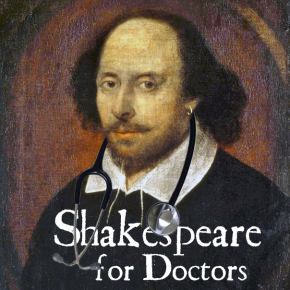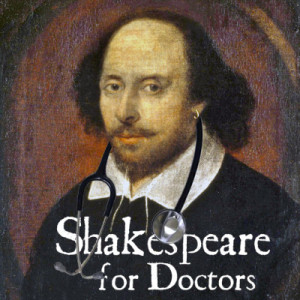 When my classmates ask me to recommend poems for reading, I am always thrilled to share my favorite poems. After sharing, I sometimes ask myself the following questions: What am I recommending exactly? How can reading poetry benefit my classmates? How has reading poetry helped me, if it even has? These are important questions to think about, particularly when thinking about how to prioritize reading poetry alongside other activities; this would not be unlike using triage to assign priority for treatments.
When my classmates ask me to recommend poems for reading, I am always thrilled to share my favorite poems. After sharing, I sometimes ask myself the following questions: What am I recommending exactly? How can reading poetry benefit my classmates? How has reading poetry helped me, if it even has? These are important questions to think about, particularly when thinking about how to prioritize reading poetry alongside other activities; this would not be unlike using triage to assign priority for treatments.
Consider a medical student studying for an anatomy exam, or a resident preparing for case presentations. With these demands on time, one might wonder how the student or resident has time to read poetry, or why he would even make time to read poetry. But medical students and doctors do make time to read poems, myself included, despite other competing time commitments. This fact interests me, and it’s something I’ve meant to explore more in writing. My central goal for this column, then, is to share reasons why I think medical students and doctors make time to read poems, and also to explore what I think others that don’t already read poems can gain from incorporating poetry into their lives. For this first installment, I’d like to share how I discovered value in poetry and imaginative literature.
I have not always enjoyed reading poetry or other forms of imaginative literature, and I certainly resisted the way that most poetry and literature classes were taught in high school and college, though there were notable exceptions. Professor Richard Ruland offered a class during my sophomore year at Washington University about 19th century American literature; in that class, we read works by Emerson, Thoreau, Whitman, Hawthorne and Melville. Most of us recognize these names, and many of us likely read their works in high school, though some of us might not have favorable memories about how their works were taught. I felt this way coming into college, and as I searched for a course to fulfill my humanities requirements, I decided to give these 19th century writers and their 21st century teacher-readers a second chance. At least I enjoyed Emerson’s ideas, regardless of how Emerson was being taught.
Rather than teach us what a Whitmanian poem meant, or what an Emersonian essay was supposed to mean, Professor Ruland taught us how he, and others, arrived at that meaning. This shift in focus from “what” to “how” was new to me at the time, and following Professor Ruland’s teaching was a key moment in enabling me to both discover and develop a new thinking skill and also to begin appreciating these texts. I started to enjoy reading challenging texts more than I had before because I gained more from reading them, and I gained more because I learned to identify not just what my classmates and teachers were saying, but how they arrived at what they were saying. The take-home message, then, is that putting in time to think about methods, and not just results, can lead to greater enjoyment and competence at a skill, whether that be reading a challenging text, or studying for a challenging exam.
Of course, the lesson I had learned from Professor Ruland could have been learned in many other ways — that is to say, one does not have to struggle through difficult poetry to figure out that learning “how” is just as important as learning “what.” But I do believe that reading challenging poetry — English translations of Homer, Dante and Virgil, or masterpieces by Chaucer, Spenser and Milton — can heighten one’s sense of how something is done rather than just what is being done. This is because poetry rarely works at a literal level, and it pushes readers to focus on what is not being directly said. Without this shift in focus from what to how, readers usually get less out of reading poetry, as there is typically little that happens on the level of “what.” On the level of plot, for instance, Milton’s “Paradise Lost” is a retelling of Genesis; that is, if we focus only on what happens in Milton’s epic. But how Milton gets from “Of man’s first disobedience, and the fruit / Of that forbidden tree…” to “They hand in hand with wandering steps and slow, / Through Eden took their solitary way” after over ten thousand lines of poetry is a question that has led readers of Milton to write volumes that fill entire sections in libraries.
To continue using Milton as an example, his poetry offers readers excellent practice in developing more sensitivity to language. He opens his epic by invoking a poetic muse to sing “Of man’s first disobedience, and the fruit / Of that forbidden tree…” A careful reading that focuses on how Milton is working his poetry reveals that “fruit” has a double meaning — both the edible type of fruit and the idea of fruits, or consequences. By being more sensitive to language, I propose, one will be able to read, think, and write more clearly and effectively. To this effect, I remember that practicing reading and writing about poetry has led me to feel more comfortable in situations when I needed to capture the essence of a subject matter, such as a biological question or an experimental setup, and then translate that subject matter into words. Being an aspiring physician-scientist, however, I should remark that there is no way to prove that reading poetry has led me to be better at thinking or writing. However, the connection makes sense to me — when one thinks about how meaning is created and communicated, and then practices creating and communicating meaning, one gets better at doing that over time.
I want to emphasize also that one need not be an English major to get value from reading Milton, Shakespeare or Spenser. One also does not need to be someone like Harold Bloom, a gifted literary critic whom I deeply respect and who grew up being ravished away by the words of Hart Crane and other poets. Unlike Harold Bloom, I did not read and memorize “Paradise Lost” in my early teenage years. I am someone who found most poems to be challenging, let alone “Paradise Lost.” But for me, these difficulties have become difficult pleasures, and this transformation happened both after taking courses with Professor Ruland and after using his methods to read and write about Shakespeare in my semester at University College London. There, in London, I rediscovered Shakespeare and was swept away. Now in medical school, spending time indulging in this difficult pleasure of reading Shakespeare has continued to improve my reading, thinking and writing skills. The latter two skills are, for many, variations on a theme, and I certainly agree with Isaac Asimov that writing is simply thinking through one’s fingers.
So if my experience has inspired you, or if you have always been meaning to read more poetry, the next logical step would be to think about what to read. Shakespeare? Milton? The New Yorker? in-Training? The Hunger Games? As much as possible? Importantly, one should first realize that we are reading everyday when we check emails or even when we interact with other people. I like to use “reading” in the broadest sense of the word, including not only reading words and texts but also reading situations and scenarios. But as medical students, time is very much limited, and we must prioritize. Should we read anything that is fun and easy? Absolutely, if you so desire, but I advocate also making time to read anything that is difficult and unpleasant, remembering to turn the unpleasant into a difficult pleasant. You may ask, “Why bother?” I have asked that question myself, but then again, I have also asked why I lift weights and jog to Central Park when I can be sitting in Central Park reading “A Midsummer Night’s Dream,” or why I think carefully about what I eat rather than indulge in whatever seems to taste good at the moment. Reading difficult writing trains the mind; it is lifting weights for the brain. Convincing studies published in The New England Journal of Medicine identified reading as an activity that prevented early onset of dementia symptoms. As medical students, we might not be terribly concerned about onset of dementia, but most of us are interested in maintaining both a clear mind and acuity of thought. Reading challenging literature, I propose, can help in this endeavor. Shakespeare provided the English-speaking world with plenty of challenging prose and verse to aid in this endeavor. And, as was mentioned in “Asimov’s Guide to Shakespeare,” those who can read English are very much blessed to still be able to read Shakespeare without translation. I bring in Asimov’s point because one day, English-speakers may no longer be able to read Shakespeare some type of translation, because most languages, including English, are continually evolving.
I hope this first installment has been a broad but useful primer on how reading poetry and imaginative literature can be beneficial to medical students and doctors. My future installments will include more concrete examples, and those examples will primarily take the form of stories that describe connections between my reading experiences and my other experiences in medical school. My focus will be on Shakespeare and his poems and plays.
This column is about the benefits of reading Shakespeare and is written with medical students, doctors, and scientists in mind. Reading Shakespeare’s verse drama trains reading skills, in the broadest sense of the word “reading.” Reading well means doing active thinking, questioning, and imagining, which are the same skills involved in reading a complex patient, or an elusive scientific problem. Shakespeare offers excellent plays for practicing these skills outside the clinic or laboratory, and my goal is to give examples of how I read his verse drama — each installment will focus on one play.







